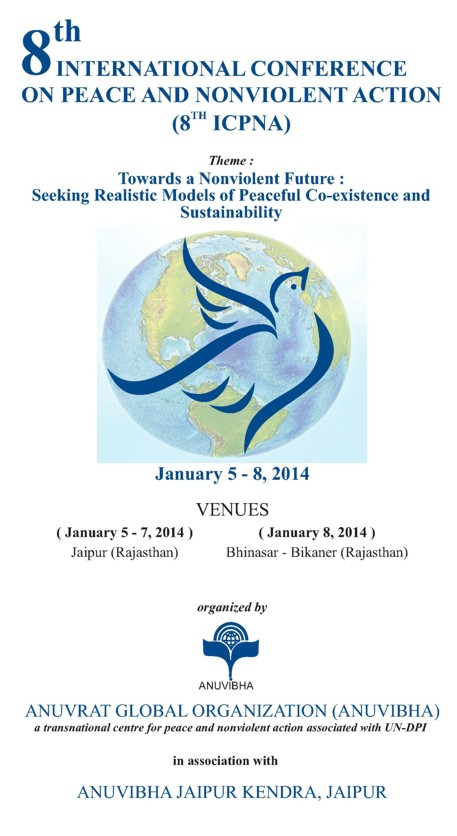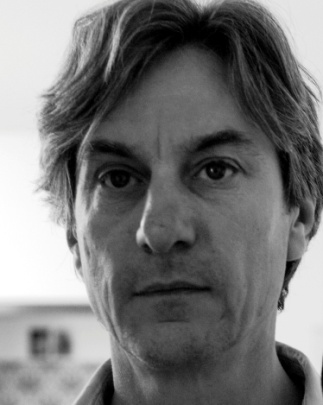 | 8th International Conference on Peace and Nonviolent Action |
Sharing as The Path To Peace
Division and injustice: Worldwide inequality
Where and to whom one is born is, it seems, arbitrary, chance, fate or karma being the divine decision maker. Wake from innocence to middle class parents in one of the developed wealthy nations of the world, and be blessed with comfort, opportunity, good health care and education and a life of profitable possibilities. Find yourself in a slum in Nairobi or the daughter of tea pickers in Assam and see before you: poverty, oppression, and the threat of extreme exploitation.
The disparity between the wealthy minority and the billions living in suffocating poverty is greater than it has ever been. Worldwide it is estimated that the wealthiest 10% owns 85% of global household wealth. “The richest 2% of the world population own more than 51% of the global assets”. At the other more densely populated, less perfumed end of the scale almost half the world’s people (over 3.5 billion) live on less than $2.50 a day; and 80% live on less than $10 a day. The largest proportion, of those living in poverty are to be found in India rural China and Sub-Saharan Africa.
Upon a foundation of deep spirituality and philosophical treasures, proclaiming unity, justice and service, New India, horns honking in violation of the good; is racing, no time to spare towards the Alter of Materiality and Market Fundamentalism. Two decades of 9% growth has created 55 US $ billionaires - Billionaires incidentally who are rich billionaires, unlike the German or Japanese ones, who are poor by comparison. In addition to billionaires there are around 200,000 dollar millionaires; between them these billion million mega men, they are of course all men (worldwide women make up only 2% of billionaires), run the massive Indian corporations that in turn run India.
The last twenty years have also produced the new middle class that we hear so much about, and a vast underclass of people - around 800 million, living in extreme poverty. Inequality stalks the land: in the cities with their sprawling, overcrowded slums alongside the new high-rise designer shoppers, between desperately poor rural communities and urban dwellers and within the countryside itself. There is inequality within inequality, as government definitions of what constitutes poverty are re-imagined to exclude great swathes of people in need.
Of the two billion children in the world, half are currently living their lives in extreme poverty, with limited or no access to clean water or sanitation, health care and education worth the name. The greatest concentrations of people living below the $2 a day poverty line are to be found in rural areas where three in every four of those below the poverty borderline are to be found. Life is little better in the cities where over half the world’s 7.2 billion population now live, one in three of whom are living in a slum.
Flowing from wealth and income inequality (combining to create the powerful elite), is the inequitable use and distribution of natural resources; water and food, minerals, and we could add knowledge, information, technology and skills. The United States, for example, with a mere 5% of the world’s population, uses 30% of natural resources, many of which are found in poor developing countries - countries that have little or no control over their resources and on the whole do not benefit from their extraction and sale.
Inequality, vulnerability exploitation
The need to shareThe extreme dualities of poverty and wealth inevitably create the vulnerable and the powerful, the abuser and the abused.There are wide ranging consequences of such social division: the erosion, or denial of democracy, for with money comes power and with power political influence, making it inevitable that “inequality reinforces itself by corroding our political system and our democratic governance”. Inequality and the “Globalization of Indifference” (Pope Francis) flow from the ideology and worldwide domination of market fundamentalism.
Income and redistribution inequality in America is “off the scale”[Chomsky], only South Africa and Latin America have higher levels of inequality. It leads the industrialised rich world on every measurement of inequality (followed by their 53rd state, Israel and main international ally, Britain). At the other more equal and just end of the income/wealth spectrum of developed nations, we find Japan, Finland, Norway, Sweden and Denmark. In these countries where the level of inequality is considerably lower, Richard Wilkinson (emeritus professor of public health at the University of Nottingham) found there is less crime and far fewer murders. Children have a better life, people live longer; there are less mentally ill, drug and alcohol dependent. Literacy levels are higher; obesity numbers are lower; there are less teenage pregnancies; prison numbers are much lower (America is “off the scale” here too), and community life is stronger and more vibrant. In his detailed investigation Professor Wilkinson discovered that, “more unequal societies do worse on lots of social issues and health,” concluding, “general social dysfunction is related to inequality.”
A key finding was that in unequal societies people do not trust one another. In America a mere 15% confessed to trusting others, whilst in countries with greater levels of equality, 60% of the population trust their fellow citizens. The lack of trust fuels divisions, strengthening suspicions of the ‘other’, which aggravates social tensions and fuels criminality resulting in distrust.
Emerging with growing momentum amongst the evolving values of the new time is the unifying principle of sharing. Sharing is hip, as the Economist (14/10/2010) reports “Trendy folk are applauding. “Sharing is clean, crisp, urbane, postmodern,” says Mark Levine of the New York Times. “Owning is dull, selfish, timid, backward.” The sharing craze has spawned new books and sharing initiatives, schemes and groups abound, from the international to the individual. The worldwide Web - the wonder of the age, offers a platform for creative sharing opportunities that many are developing. News and communication are being revolutionised, the sharing of images, film, knowledge, ideas, opinions, etc. is transforming notions of participatory democracy, expanding free speech, and freedom of information.
Humanity shares much; the Earth for one, the universals of joy and suffering, a similarity in nature and condition, some would say a universal soul, or divine essence.Sharing is an expression of humanities interconnection, when we share we break down barriers and cultivate relationship.
There are many sharing initiatives which are reflective of the times, the United Nations (UN) e.g. has recently established a website for the United Nations Environment Programme (UNEP) that champions positive development programmes, the function of the website is to give local communities in developing countries the skills and knowhow to better manage the natural resource in their environment, and to strengthen partnerships between groups working on sustainable development projects. This ground - breaking forum offers groups working in associated areas the chance to share their knowledge, research and experiences,
Intergovernmental ‘burden sharing’ is being applied to the increasingly international issue of refugees, The Journal of Refugee Studies, research paper Burden-sharing during Refugee Emergencies suggests that “such schemes are based on the premise that collective action might lead to better and more enduring resolution of crises than unilateral measures by individual nation states.” Common sense, much under-rated, is we will find at the heart of all sharing initiatives
Sharing between pupils/students and teaching staff is finding a place within many educational institutions of all types and levels. Group work within schools is the model increasingly being employed, helping to build relationships, encourage cooperation and balance somewhat the divisive effects of competition. Communication between educators sharing methodologies and experiences, like Wikispaces, that offers opportunities for interaction, collaboration and sharing,
Sharing skills and goods, knowledge and techniques, ideas and views, exchanging services and materials. Platforms of contemporary barter, homemade jam, for freshly baked bread, lunch in payment for cleaning, Schemes generated by economic necessity the cynic may say, well perhaps. I suggest they are worldwide seeds of social transformation and one feels it's simply the beginning. Seeds of a new and just economic structure, that clarifies action through the purification of motive.
We need to re-imagine this decaying civilization, and design a new economic system that serves the needs of us all, and economic system that Benjamin Crème in The Art of Cooperation suggests is based on the “principle of sharing” it is an idea whose time is dawning.
Peace and sharing are closely connected, a relationship made clear in the Brandt Report, which in 1983 stated that “A new century nears, and with it the prospects of a new civilization. Could we not begin to lay the basis for that new community with reasonable relations among all people and nations, and to build a world in which sharing, justice, freedom, and peace might prevail?” Look closely, with an open mind and the early signs of such a world are perhaps to be glimpsed, for within the fogs of conflict and suffering there is hope and cause for optimism. The growing sharing initiatives are a herald of the new; they are to be welcomed, championed indeed. Professor Frederico Mayor Zaragoza, a former director of UNESCO, makes the case for peace through sharing, “We (the UN) exist to create, physically and intellectually, the conditions for peace. This implies real justice and sharing, not a simple distribution of aid and political patch-up.” ‘Real justice’, is concerned with the implementation of universally agreed human rights, with participation, consultation and crucially equality - the fair and equitable distribution of the Worlds resources. All are democratic ideals and all will be realised through expressions of sharing.
Sharing the world’s resources would be a giant step in establishing social justice and dissipating tensions between wealthy countries and the developing nations. Benjamin Crème makes the point in The Art of Cooperation, that “Sharing the world's resources will restore sanity to the world. It will make life happier for most people.” furthermore, “Through sharing alone will justice be confirmed.“ Clearly it is unjust that 70% of the worlds natural resources, food, water etc. are usurped and wasted by 30% of the worlds people, is this just, sane even?
Sharing unites people and helps us to recognise our universal nature, it is to be cultivated in all areas of life, The Brandt Equation states. “Caring, mutual respect, generosity, and sharing begin at home after all, and should be expressed no differently in global economic relations. It is, in fact, that simple.” It is a fact simple indeed that is gaining ground. Let us harken to the call for sharing, within the home, the community, the nation and throughout the world, and witness the dispelling of that 21st century epidemic - stress, the flowering of justice and trust and maybe, just maybe the realization of that long longed for jewel; peace on Earth.
 Graham Peebles
Graham Peebles